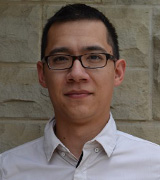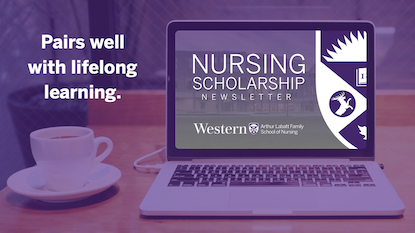
Susana Caxaj
|
Calling Out Conditions of Conditionality: Housing, Health and Public Protections for Migrant Farmworkers
February 28, 2023, Noon to 1:00 PM ET
The right to health, quality housing and legal protections available on paper to temporary migrant farmworkers are often not implemented in practice. This presentation highlights some high-level findings from several research projects with this population to illustrate how marginality for this group is politically prescribed through institutional and federal policy, and normalized, through cultural discourses. Recommendations for federal agencies, provincial government and health and social care providers are outlined.
|

Richard Booth
|
The Intersection of Artificial Intelligence and Nursing Education: Current Examples
April 25, 2023, Noon to 1:00 PM ET
In the last few years, there have been significant increases in the use of various artificial intelligence (AI) technologies within nursing education. In this presentation, two specific AI-based technologies will be discussed, including their current and future implications for nursing education. First, the use of AI-powered patient simulation technology will be described and showcased, including descriptions of the potential and limitations of this kind of technology. Second, the use of AI-powered knowledge generation platforms (e.g., ChatGPT) within contemporary academic and nursing education scholarship will be explored. Recommendations to educators and practitioners interested in leveraging AI-powered technologies to support scholarship will also be provided.
|

Kim Jackson
|
The Art of Mothering
May 30, 2023, Noon to 1:00 PM ET
Relatively little inquiry has been directed toward mothering in the context of gender-based violence (GBV). Unfortunately, conventional research often follows traditions which serve to further perpetuate stigma among women who experience violence. Our study aimed to fill a critical knowledge gap by exploring the experience of GBV among mothers using a novel, arts-informed, qualitative approach. Preliminary findings from this study, including evocative participant-created works of art, will be shared.
|






